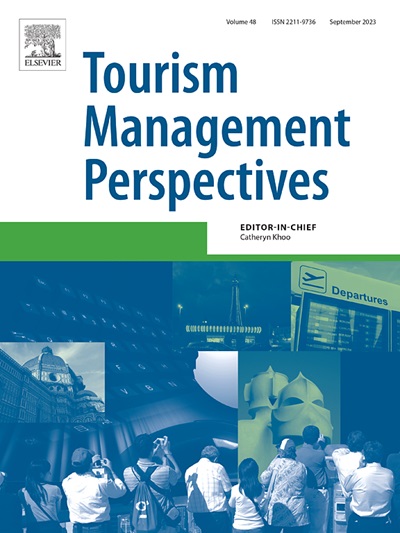Generational differences in adopting AI-generated travel advice: What drives trust and reduces resistance?
IF 6.9
2区 管理学
Q1 HOSPITALITY, LEISURE, SPORT & TOURISM
引用次数: 0
Abstract
The adoption of Generative Artificial Intelligence (GAI) in tourism is expanding, yet significant generational differences remain in its acceptance for travel planning and decision-making. This study, drawing on the theoretical lens of innovation resistance and generation theory, examines how generational attitudes toward technology shape perceptions of barriers to GAI adoption in tourism experiences. Using data from South Korea and the United States, the research employs Structural Equation Modeling (PLS-SEM), multi-group analysis (MGA), and fuzzy-set Qualitative Comparative Analysis (fsQCA) to uncover generational disparities in GAI acceptance. Findings reveal distinct challenges faced by different age groups, emphasizing that trust, usability, and perceived risks influence adoption patterns differently across cohorts. The study contributes to the growing theoretical discourse on GAI adoption in tourism and provides practical insights for tailoring GAI solutions to enhance user acceptance and satisfaction across generations.
采用人工智能生成的旅行建议的代际差异:是什么推动信任并减少阻力?
生成式人工智能(GAI)在旅游业中的应用正在扩大,但在旅游规划和决策方面,其接受程度仍存在显著的代际差异。本研究利用创新阻力和代际理论的理论视角,考察了代际人对技术的态度如何影响对旅游体验中GAI采用障碍的看法。利用韩国和美国的数据,该研究采用结构方程模型(PLS-SEM)、多群体分析(MGA)和模糊集定性比较分析(fsQCA)来揭示GAI接受度的代际差异。研究结果揭示了不同年龄组面临的不同挑战,强调信任、可用性和感知风险对不同年龄组的采用模式的影响不同。该研究为旅游业中GAI采用的理论论述做出了贡献,并为定制GAI解决方案提供了实践见解,以提高跨代用户的接受度和满意度。
本文章由计算机程序翻译,如有差异,请以英文原文为准。
求助全文
约1分钟内获得全文
求助全文
来源期刊

Tourism Management Perspectives
Multiple-
CiteScore
15.60
自引率
3.40%
发文量
99
审稿时长
59 days
期刊介绍:
Tourism Management Perspectives is an interdisciplinary journal that focuses on the planning and management of travel and tourism. It covers topics such as tourist experiences, their consequences for communities, economies, and environments, the creation of image, the shaping of tourist experiences and perceptions, and the management of tourist organizations and destinations. The journal's editorial board consists of experienced international professionals and it shares the board with Tourism Management. The journal covers socio-cultural, technological, planning, and policy aspects of international, national, and regional tourism, as well as specific management studies. It encourages papers that introduce new research methods and critique existing ones in the context of tourism research. The journal publishes empirical research articles and high-quality review articles on important topics and emerging themes that enhance the theoretical and conceptual understanding of key areas within travel and tourism management.
 求助内容:
求助内容: 应助结果提醒方式:
应助结果提醒方式:


